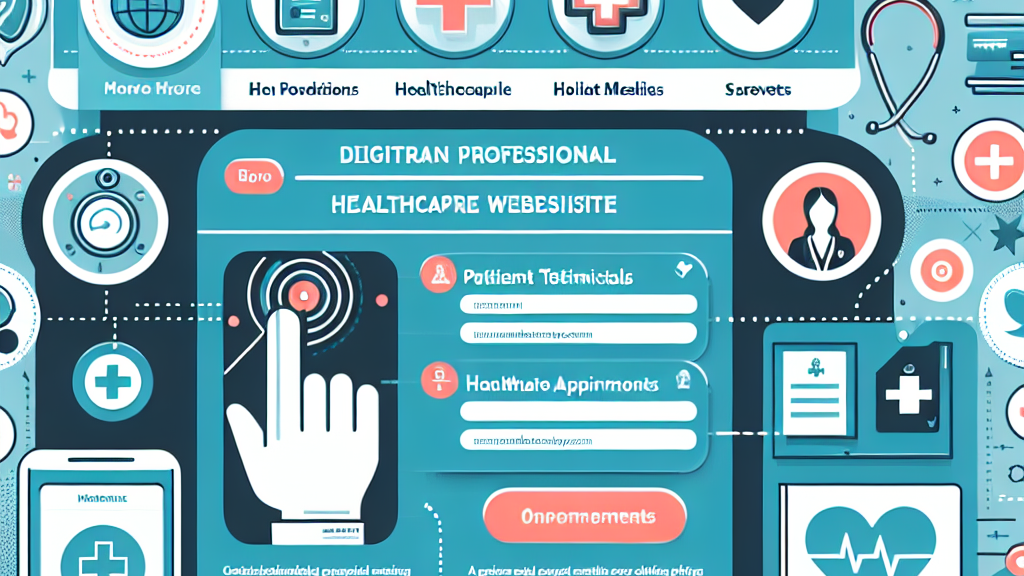Introduction:
In today’s highly competitive healthcare industry, it is challenging for healthcare professionals to stand out. Simply relying on medical expertise is no longer enough; a strategic marketing approach is now essential. By using various tools and techniques, healthcare providers can establish a strong online presence, attract new patients, and nurture existing relationships. This article reveals the top 20 strategies for effectively marketing a successful healthcare practice, including search engine optimization, social media engagement, and more.
1. Your Website: The Key to Success
A well-designed, informative website is crucial for establishing an online presence. Regularly updating it with fresh content not only improves search engine rankings but also provides current information to potential patients.
2. Building Partnerships for Growth
Establish alliances with other healthcare professionals and community members. These partnerships can generate valuable referrals and expand the reach of your practice.
3. Mastering SEO
Search Engine Optimization (SEO) is vital for increasing online visibility. Optimize website content, metadata, and keywords to achieve higher rankings on search engine results pages.
4. Content is Important
Content marketing builds trust and establishes authority. Share valuable information through blog posts, newsletters, videos, or podcasts to engage your target audience.
5. The Power of Social Media
Utilize social media platforms like Facebook, Instagram, and Twitter to build a community and interact with patients. Showcase your expertise, humanize your practice, and foster patient loyalty.
6. Personalized Communication with Email Marketing
Connect directly with patients through personalized email campaigns. Newsletters keep patients informed about healthcare updates, new services, and special offers.
7. The Impact of Exceptional Patient Care
Providing exceptional patient care leads to positive word-of-mouth marketing. Satisfied patients become passionate advocates, attracting new patients to your practice.
8. Strategic Advertising
Utilize platforms such as Google Ads and Facebook Ads to effectively reach potential patients. A strategic advertising approach can significantly enhance your visibility and attract new clientele.
9. User-Friendly and Mobile-Responsive Websites
Ensure your website is user-friendly and works well on various devices. Patients should be able to access information easily, improving their interaction with your practice.
10. Showcasing Expertise and Trustworthiness
Include detailed service descriptions, qualifications, and patient testimonials on your website. This provides potential patients with the necessary information to make informed decisions.
11. Establishing Thought Leadership
Fresh and relevant content on your website establishes thought leadership and positions your practice as a trusted source of healthcare information.
12. Adaptation Based on Data Insights
Continuously monitor and adapt your marketing strategies for success. Analyze data and track key performance indicators to refine your efforts.
Conclusion:
Effectively marketing a successful healthcare practice requires a comprehensive approach that utilizes the power of digital marketing. From creating an engaging website to leveraging social media platforms, healthcare professionals can engage with patients, build trust, and establish themselves as industry leaders. By incorporating SEO, content marketing, and personalized email campaigns, healthcare providers can attract new patients and nurture existing relationships. Furthermore, forming partnerships with other healthcare professionals and community members can lead to valuable referrals. By implementing these essential strategies, healthcare professionals can navigate the complexities of marketing and propel their successful practice to new levels of achievement.











